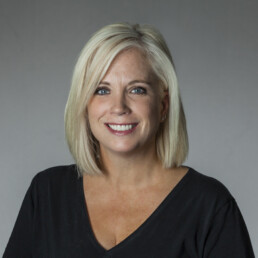The Workforce Beyond Boomers
The Workforce Beyond Baby Boomers
Staci Hegarty, M.Ed, VP of Equity and Inclusion
2030 is the year all Baby Boomers (born 1946-1964) will be at or above the traditional retirement age of 65. Although many Boomers work well past that age, there will be more open roles within organizations that cannot be filled by the next generation of workers. Combine this with the Great Resignation, employers are finding themselves in the difficult position of not being able to find enough qualified workers.
What Does the Future of the Workforce Look Like?
Organizations are not only losing the employee, they are also losing historical knowledge and the skillsets that come with time spent on the job. On average, Boomers are most likely to spend more years with the same employer than the other generations. The average Boomer has a workplace tenure of over eight years, with several studies indicating that nearly 40% have been with their employer for 20+ years. Gen X (born 1965-1979) averages about 5 years, while Millenials (born 1980-1994) and Gen Z (born 1995-2012) both average less than three years.
The younger generations are quick to leave an organization that does not value their time, talents, and insights, and with so many open roles, they are able to find new opportunities relatively quickly. Employee attrition can destroy a company by derailing the strategic plan, stifling innovation, and driving up costs related to human resources and recruiting. We are already in a hiring crisis and employers must take tangible and impactful action to retain and promote the workers they already have.
How Do We Support the Next Generations?
The old mindset of employee retention no longer works. A fair salary is an obvious requirement to attract a retain employees, but that alone will not be enough to prevent an employee from leaving. The culture of the company is the most important thing to workers. Job security, work/life balance, connections with coworkers and flexibility – in not only work schedule but in workplace (home versus in-office) – are the top four drivers of employee satisfaction. Organizational Change Management (OCM) in partnership with Diversity, Equity, and Inclusion (DE&I) work will allow companies to transform the existing workplace culture from “good enough for now” to dynamic, empowered, and innovative.
Envision RISE offers a comprehensive approach to help companies build a dynamic and empowered workplace culture that is prepared and adaptable. Through surveys, focus groups, executive alignment, and policy review, Envision RISE can help companies understand their employees’ sentiment, identify areas of improvement, and develop a roadmap for continual improvement. This approach is crucial for creating a workplace culture that not only retains employees but also drives innovation and growth.
Contact us to get started. Listen in to the most recent Envision RISE Podcast featuring Martine Kalaw, founder of Martine Kalaw Enterprises and author of “ABCs of Diversity,” as we discuss the generational changes actively happening and how they are reshaping the future of the workforce.

